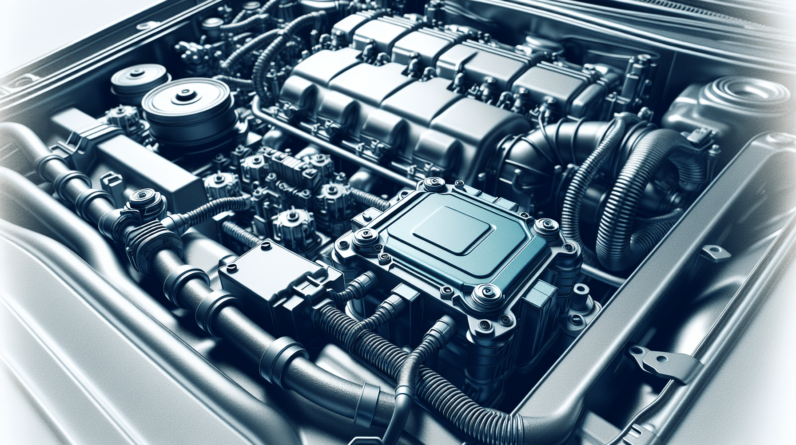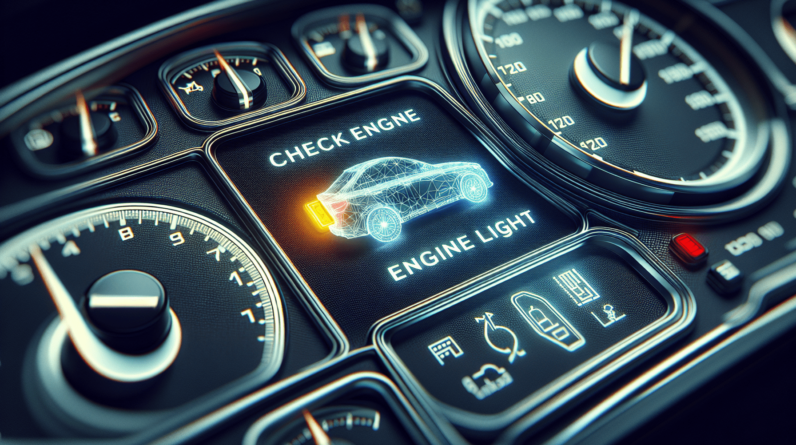
Have you ever wondered how often you should have your vehicle’s ECU reprogrammed? It’s a common question among many car owners, and for good reason. Your vehicle’s Engine Control Unit (ECU) plays a crucial role in its performance, fuel efficiency, and overall health. Understanding when it might be appropriate to reprogram your ECU can help you maintain your car better and potentially save money in the long run. Let’s explore this topic in detail to give you a comprehensive understanding of ECU reprogramming.
In Need of Auto Care? Dial 913-605-3126 for Remote or In-Shop Services!
What is an ECU and Why is it Important?
The Engine Control Unit, or ECU, is essentially your car’s brain. It manages various engine functions, controls fuel injection, ignition timing, and other critical parameters. By constantly monitoring and adjusting these elements, the ECU ensures that your vehicle runs efficiently and meets emissions standards.
Functions of an ECU
The ECU’s primary role is managing the engine. However, it also controls:
- Fuel Injection: Ensures the right amount of fuel is injected into the engine.
- Ignition Timing: Controls the timing of the spark plug ignition.
- Air-Fuel Ratio: Balances the air and fuel mixture for optimal performance.
- Emission Controls: Manages systems to reduce emissions.
Given these responsibilities, it’s clear why keeping your ECU in top form is essential for your vehicle.
Why Would You Need to Reprogram Your ECU?
You might wonder why reprogramming your ECU would be necessary. Below are some common reasons why ECU reprogramming might be needed:
Performance Improvements
Sometimes, reprogramming your ECU can enhance your vehicle’s performance. This could involve increasing horsepower, improving throttle response, or optimizing fuel efficiency.
Updates and Fixes
Car manufacturers often release software updates for ECUs to fix issues or bugs that could affect vehicle performance or safety.
After Market Modifications
If you’ve made significant aftermarket modifications, such as installing a new exhaust system or turbocharger, you might need to reprogram the ECU to accommodate these changes.
Emission Standards
In some areas, stricter emission standards might necessitate an ECU reprogram to ensure your vehicle remains compliant.
Indicators That Your ECU Might Need Reprogramming
Knowing when to reprogram your ECU isn’t always obvious. However, several indicators might suggest it’s time for a reprogram:
Check Engine Light
One of the most apparent signs is the check engine light. While this could indicate various issues, ECU reprogramming is sometimes required to resolve the problem.
Poor Fuel Efficiency
If you notice a sudden drop in fuel efficiency, it might be due to outdated ECU settings that need refreshing.
Performance Issues
Sluggish performance, trouble starting, or stalling can indicate the need for an ECU reprogram.
Failed Emission Test
If your car fails an emission test, a reprogram might be necessary to bring it back into compliance.
Manufacturer Recommendations
Every car manufacturer has its guidelines regarding ECU reprogramming. It’s crucial to consult your vehicle’s manual or speak to a dealership to understand these recommendations.
Common Recommendations
| Manufacturer | Recommendations |
|---|---|
| Toyota | Often recommends checking the ECU at regular services |
| Ford | Suggests reprogramming when software updates are available |
| BMW | Typically recommends reprogramming after significant component replacements |
| Honda | Advises monitoring ECU performance during routine maintenance |
Following these recommendations can help keep your vehicle running smoothly.
The Reprogramming Process
If you’re considering getting your ECU reprogrammed, knowing what the process involves can be helpful.
Diagnostic Check
The first step typically involves a diagnostic check to identify any issues with your current ECU programming.
Software Update or Reprogram
Based on the diagnostic results, a technician will update the software or reprogram the ECU to resolve any identified issues.
Testing
After reprogramming, the technician will usually perform tests to confirm that the updates have resolved the issues and that the vehicle is operating correctly.
Doing it Yourself vs. Professional Service
Some car enthusiasts prefer reprogramming their ECU themselves, while others leave it to professionals. Each approach has its pros and cons.
DIY Reprogramming
Pros:
- Cost-Effective: It can be cheaper than going to a professional.
- Control: Gives you complete control over the adjustments.
Cons:
- Risk: There’s a higher risk of making mistakes.
- Equipment: Requires specialized equipment and software.
Professional Reprogramming
Pros:
- Expertise: Professionals have the knowledge and experience to perform the task effectively.
- Warranty: Many services offer warranties on their work.
Cons:
- Cost: It can be more expensive than DIY.
- Time: You might need to leave your vehicle at the shop for a day or more.
Risks and Considerations
Before you proceed with ECU reprogramming, understanding the potential risks and considerations is essential.
Potential Risks
- Void Warranty: Modifying the ECU might void your vehicle’s warranty.
- Performance Issues: Incorrect reprogramming could lead to performance issues.
- Legal Implications: Non-compliant software could result in legal issues in areas with strict emission regulations.
Factors to Consider
- Vehicle Age: Older vehicles might benefit more from reprogramming.
- Driving Conditions: Consider your typical driving conditions and how reprogramming could affect your vehicle’s performance.
- Cost-Benefit Analysis: Weigh the costs versus the potential benefits.
How Often Should You Reprogram Your ECU?
Determining the frequency of ECU reprogramming can be challenging. Several factors contribute to how often you should consider it.
Manufacturer Guidelines
Refer to your vehicle’s manual to understand the manufacturer’s recommendations. Most often, reprogramming might be suggested at specific service intervals or after significant component replacements.
Personal Vehicle Usage
Your driving habits and conditions can also impact the need for reprogramming. If you frequently drive in extreme conditions, more frequent checks might be necessary.
Signs and Symptoms
Pay attention to the indicators mentioned earlier. If you notice any symptoms that suggest a need for reprogramming, it’s better to address them sooner rather than later.
Average Recommendations
On average, you might consider reprogramming your ECU every 30,000 to 50,000 miles. However, this can vary widely based on individual circumstances.
| Vehicle Condition | Suggested Reprogramming Frequency |
|---|---|
| Normal Use | Every 30,000 – 50,000 miles |
| High Performance | Every 20,000 – 30,000 miles |
| After Modifications | Immediately after significant changes |
Conclusion
Understanding how often you should have your vehicle’s ECU reprogrammed requires considering multiple factors including manufacturer recommendations, your personal driving habits, and specific symptoms your vehicle might exhibit. Reprogramming the ECU can lead to improved performance, better fuel efficiency, and adherence to updated emission standards, but it’s essential to weigh the benefits against the potential risks and costs.
Final Thoughts
By staying informed and attentive to your vehicle’s needs, you can make better decisions about ECU reprogramming. Whether you choose to do it yourself or rely on a professional, addressing your ECU’s needs promptly can help maintain your vehicle’s performance and reliability. So, next time you’re at a service appointment or notice some symptoms pointing towards ECU issues, remember to ask about the possibility of reprogramming. It might just be what your vehicle needs to stay in optimal condition.
Need Auto Care? Call 913 605-3126 for Remote or In-Shop Services!










